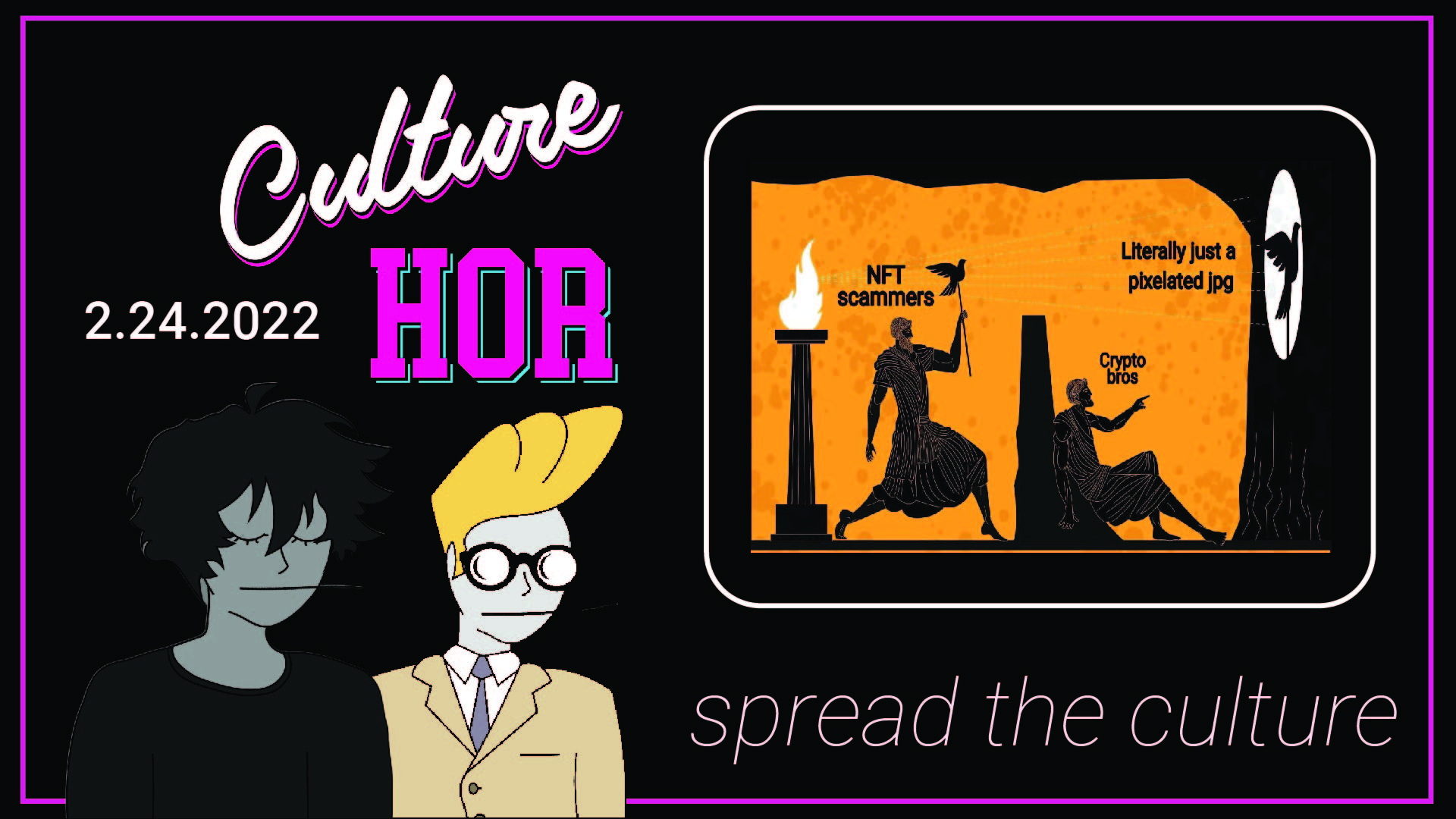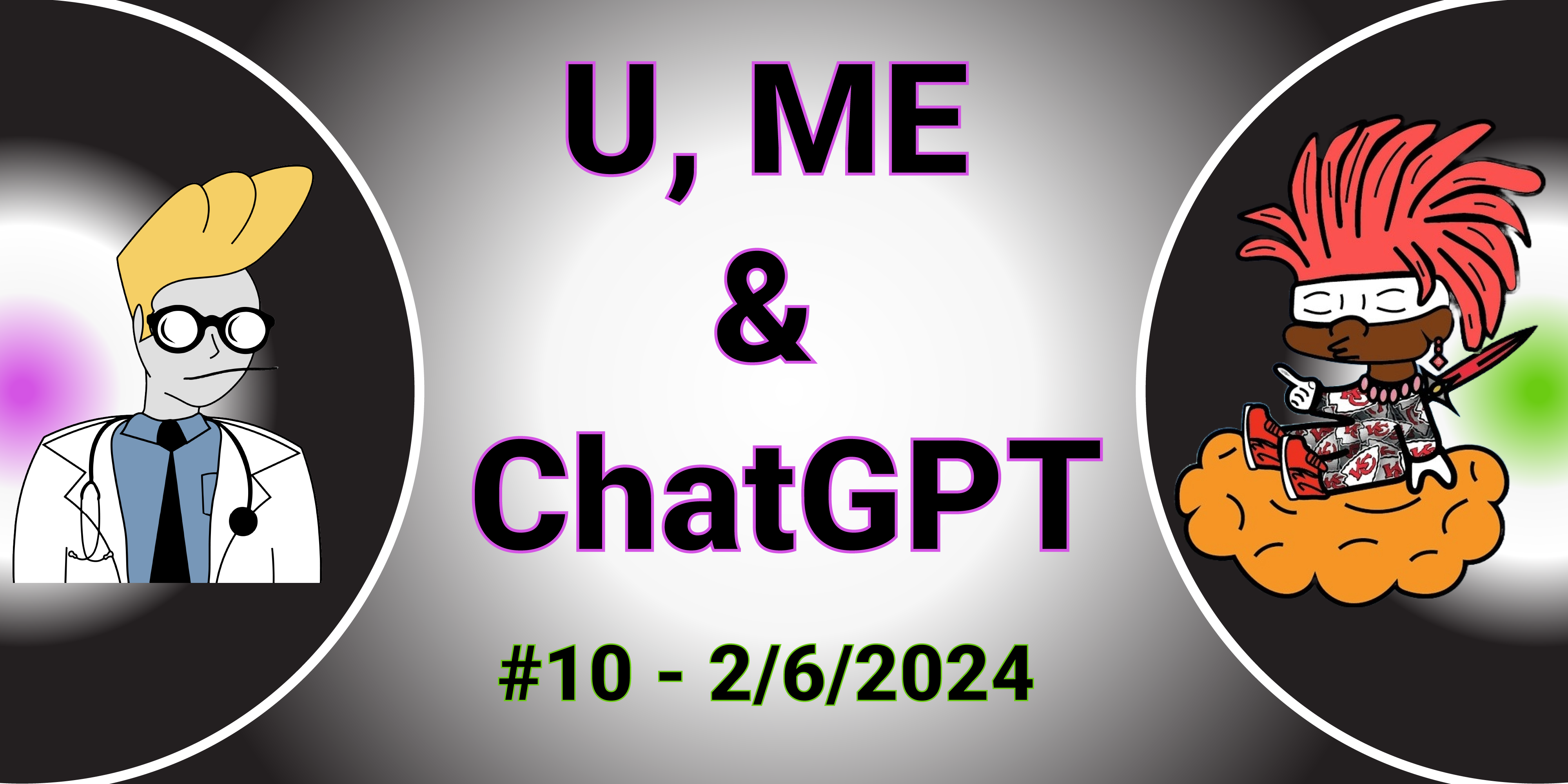Web 3.0 is a scary place, running rampant with scams, highly contagious FOMO, and mutant apes. Fear not. We’re here to wade into the cesspool so you don’t have to. Coming to you live from the dip, here’s everything important on the Internet.
Chad & El Prof
Markets
(Price changes reflect past 24 hours as of 11.18.21 @ 4:20 PM EST.)
Stormy weather continues on the OpenSeas, in spite (or because) of BTC’s biggest network upgrade since 2017. The nature of this volatile beast is that no one really knows why the fuck this dip is happening. But if you’re one of those weirdos who values (*ugh*) reason, here are some theories:
- High profile investors liquidated at the peak to secure profits.
- Looming crypto regulation lead to panicked exits.
- The universe is vast, random, and widely meaningless.
Who said white people don't have culture?
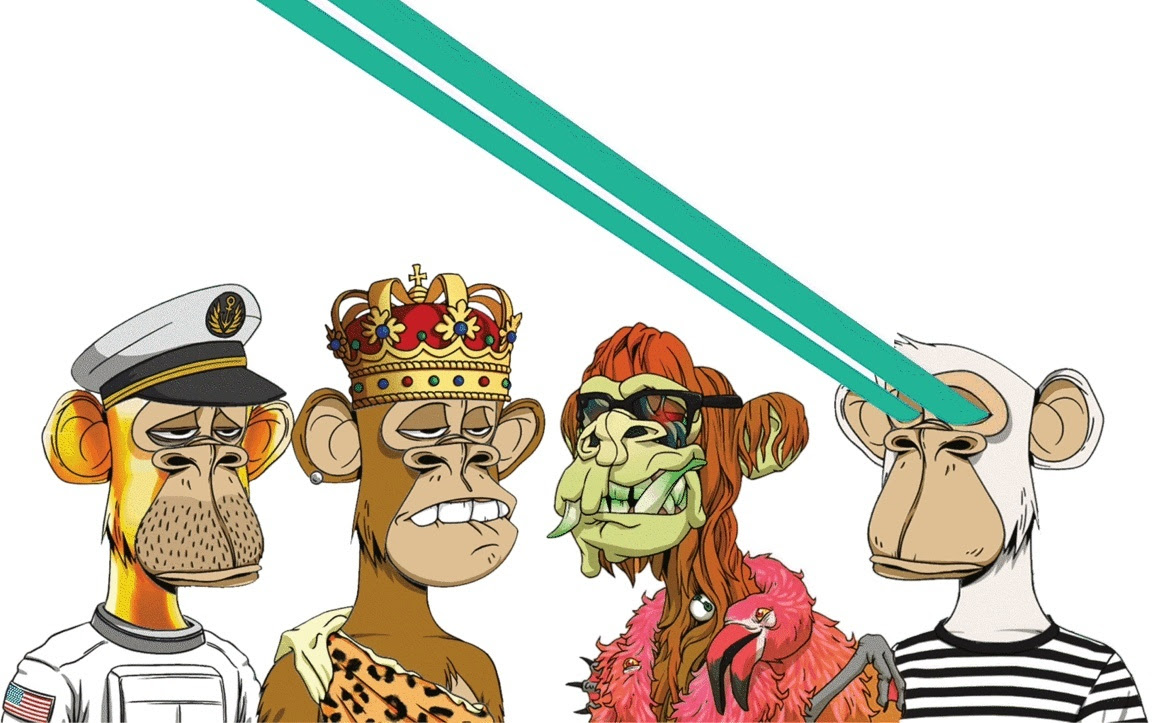
The last thing I want to talk about is Bored Ape Yacht Club again. But considering that I get paid to write about art and crypto, and that they just got signed by fucking Universal Music Group, it is now journalistically irresponsible to ignore them.
So what does it mean for an NFT to land a record deal? My initial take would be that the alien species running our simulation likes to play with its food before it eats, like cats toying with mice before chomping into our brains. Then, the pragmatist in me conquers the doomsday prophet, and I remember one of the key features of BAYC: owners have complete freedom to license and profit off their avatars. And now that ape owners include Lil Baby, Jimmy Fallon, and Mark Cuban, big media is biting.
UMG signed a metaverse musical act of four virtual ape avatars (think: Gorillaz, but worse) to be managed by the same guy as Snoop Dogg. Meanwhile, Timbaland announced his own metaverse company, Ape-In Productions, producing not one, but two BAYC acts. Jenkins The Valet, an ape with its own backstory, is represented by Creative Artists Agency, promoting a forthcoming book on BAYC lore crowdsourced by NFT holders and co-written by Neil Strauss. And the business behind BAYC, Yuga Labs, recently landed a production deal with Madonna and U2’s Guy.
These announcements emerged in the wake of a brave writer going undercover in the Bored Ape Yacht Club pop-up shop line at NFT.NYC. The piece, published in Input Magazine, delivers some Gonzo journalism worthy of Hunter Thompson — if, instead of bucket hats and gratuitous drug use, he was addicted to fedoras and JPEGs.
A standout passage from said piece: ‘The investment is not just in the artwork, but in membership to a club — one skewing white, male, and young — that grants access to worlds that otherwise might seem unattainable. “It’s like an adrenaline rush, to be where the culture is going,” [one such ape-holding young white male] says.’
Deafening irony aside, to this self-selecting sample, it makes sense that standing in line to drop $800 on a black hoodie for the sole purpose of signaling your allegiance to an in-group of its own making is synonymous with ‘where the culture is going.’ Personally, I suspect that, in the grand scheme of history, BAYC will go down in the footnotes as a flash pan phenomenon and early example of metaverse intersection with reality — a mile marker in a changing culture, not a destination. Then again, the ConstitutionDAO I doubted two days ago raised over $30m more in the interim. They may very well wind up writing the history books themselves. So who am I to say?
Either way, there is real institutional enthusiasm, fundraising power, and piles of money being thrown around in this space. Will it all go to waste on schemes of the pyramid and Ponzi varieties? More on that later. But to the right-click-savers among us, just remember: it doesn’t matter how silly all this seems. We’re always at risk of deep impact when white people with money get excited about something.
Terminal FOMO.
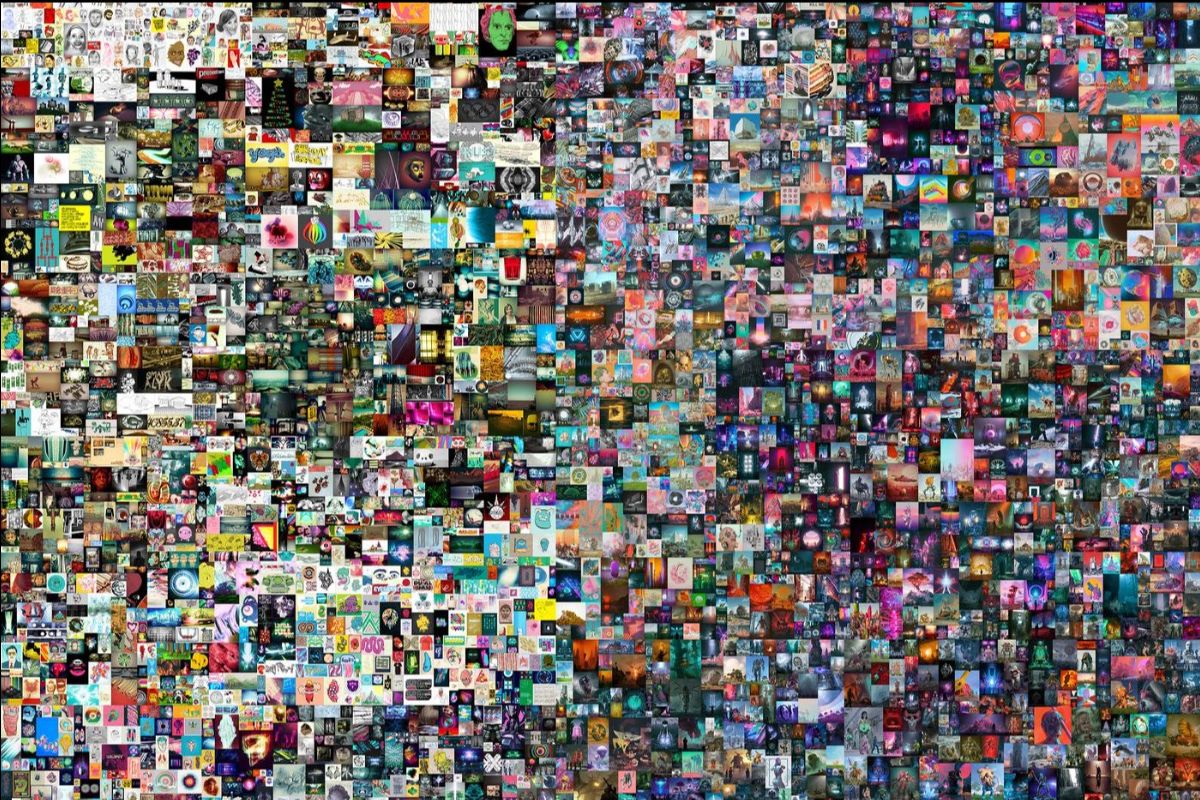
Sorry in advance to our single reader. There will be no NFT reviews today. Our FOMO is too inflamed from reading the Reuters piece on the guy who dropped $69m on a Beeple PNG. If the crypto art world is the ‘wild west’ — as he maintains — then Vignesh Sundaresan, aka MetaKovan, is its Jesse James. The $69m reportedly represents only 10% of his net worth, almost entirely in crypto, gotten out of the South Indian mud and spent on JPEGs, with more than a few FUs to the SEC along the way. We highly recommend the read.
New World HODLer.
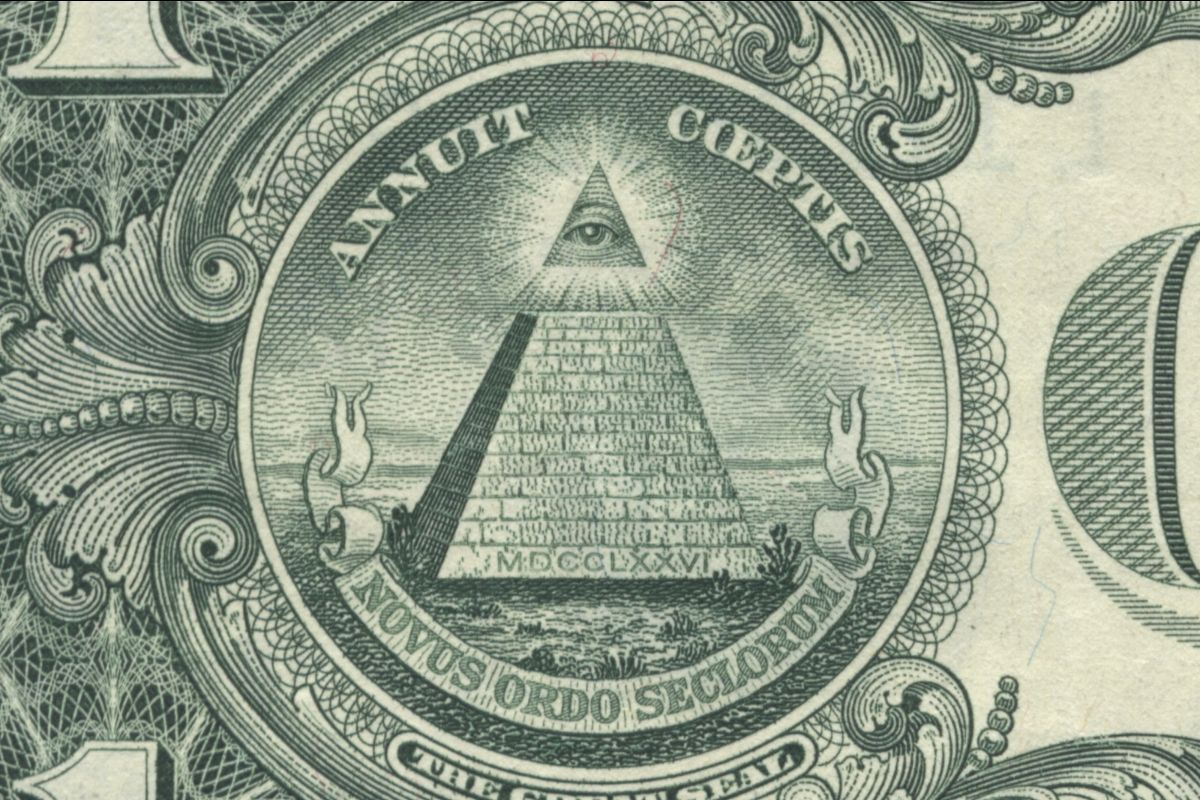
Now that Joe Exotic’s knee deep in his own tokenized tiger shit (because the last meme coin based on a Netflix series ended so well) it seems like as good a time as any to answer the eternal question: is all of decentralized finance just one big scam?
Discussing NFTs such as BAYC in the aforementioned Input article, the president of Pyramid Scheme Alert, Robert FitzPatrick, compared the ‘narrative lore and mystery that helps people believe’ in PFP projects and multi-level marketing schemes. Both are valuable ‘only if someone else will buy behind you. You look around at all the smart people that have also joined — how could you be wrong?’
William Keep, a marketing professor at the College of New Jersey, sees similarities, not parallels. The recruitment structure, according to Keep, is not the same. NFT projects rely on public opinion and social proof to drive enthusiasm and profit — not tiered, direct-to-consumer sales. The retention structure, however, more or less is. ‘Love bombing’, in which recruits are welcomed with praise and open arms, discourages them from thinking critically about how much they paid for membership, or whether the perks are worth it. See also: cults; the United States government.
DeFi, on the other hand, by and large resembles Ponzi schemes, not pyramids. ‘If you do not have any value behind you in a creative, real asset backing, then your liquidity only comes about if you have somebody new coming in — this is the very technical definition of a Ponzi scheme,’ says Marc Fleury, CEO of Two Prime, a digital asset investment firm. However, the as-made-famous-by-Madoff variety exists ‘only if [what’s] underlying disappears.’ The basic model of a token accruing buying and selling power based on user adoption ‘is how every financial instrument on the planet works, so this is not necessarily a bad thing.’
To be sure, there’s no shortage of crypto scams contaminating the ether. We’ve covered them at length here. But through my eyes, DeFi is about as scammy as the fiat dollar. Which is to say, very… unless people decide to buy into it anyway, which they have. I, too, dream of one day hawking freshly hunted elk meat for a bone flute in the honorable spirit of our homo erectus ancestors. But the anarcho primitivist in me will have to wait for the apocalypse. I’m buying the dip in the meantime.
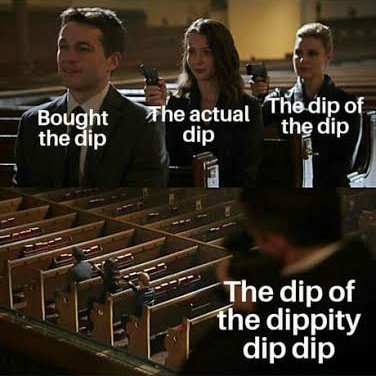
SLOPPY SECONDS
(Twitter’s Version.)
- Disinformation campaign tactics are now public information
- School boards are being bought by dark money
- DAOs now think they’re reinventing representative democracy (lol)
- An NFT strategist fails to understand NFTs, Internets


